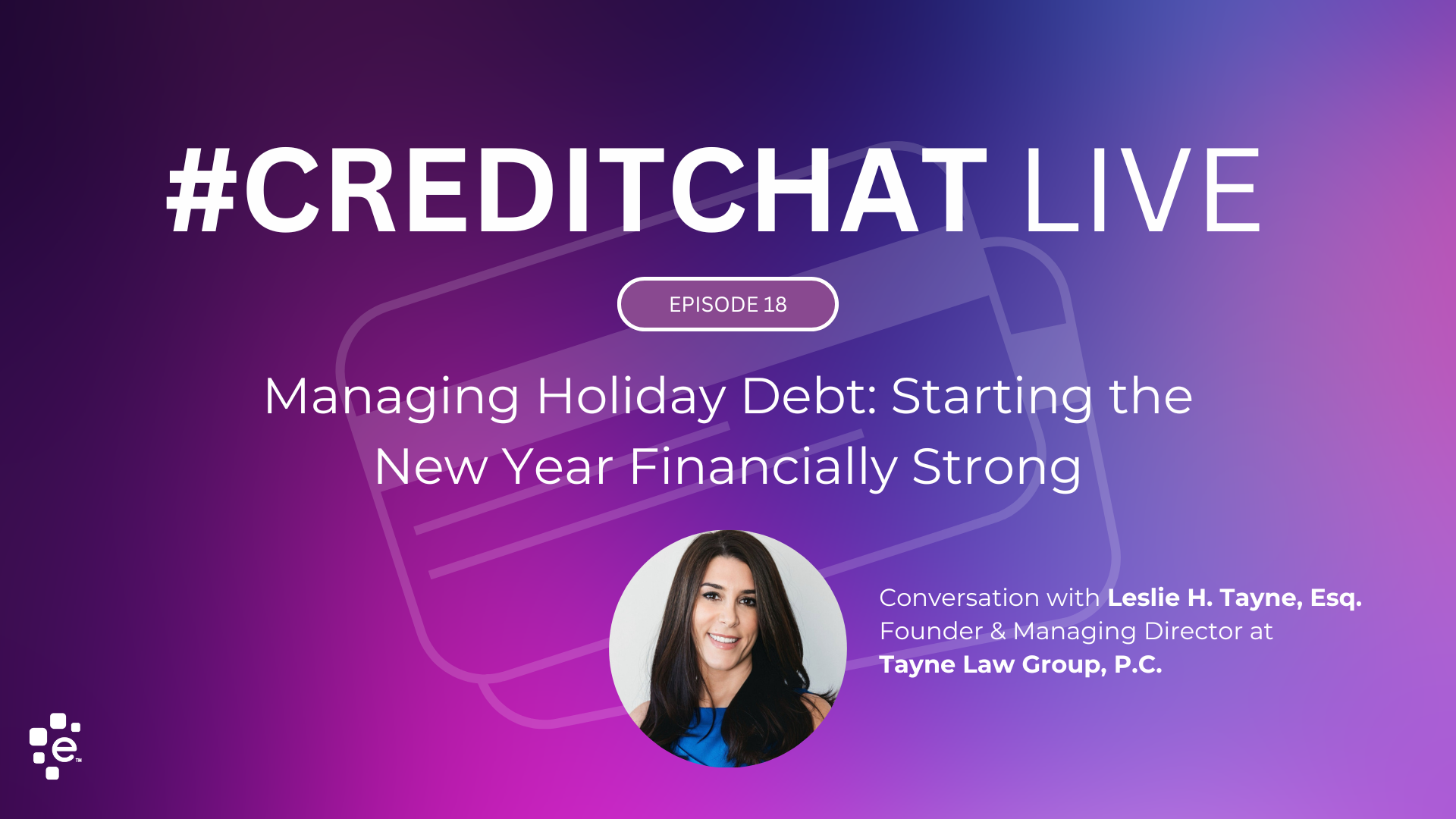Lorem Ipsumis simply dummy text of the printing and typesetting industry. Lorem Ipsum has been the industry’s standard dummy text ever since the 1500s, when an unknown printer took a galley of type and scrambled it to make a type specimen book. It has survived not only five centuries, but also the leap into electronic typesetting, remaining essentially unchanged
Author One

In May 2020, Experian launched Sure Profile and became the first company with an offering to fight synthetic identity fraud that’s integrated into the credit profile with market-leading assurance. In fact, we are so confident in our solution that we’ll share in loan losses on assured profiles if we get it wrong, a first for the industry. Recently, International Data Corporation (IDC) highlighted Sure Profile in the report, IDC, Synthetic Identity Fraud Update: Effects of COVID-19 and a Potential Cure from Experian (doc #US46690220, July 2020) stating “IDC Financial Insights believes that Experian's Sure Profile has the potential to have market disrupting effects in the battle against SIF (synthetic identity fraud).” According to McKinsey, synthetic identity fraud is the fastest growing financial crime in the United States, accounting for 10% to 15% of lender losses each year. Synthetic identity fraud occurs when fraudsters combine real and fake information to create “Frankenstein IDs” which are then used to obtain credit or to add these identities as authorized users to existing credit accounts. Then, financial institutions report the identities to credit reporting agencies. A new record with the false information is created and subsequently, the synthetic identity can be used to generate other fake accounts. It is a significant problem that Juniper Research expects will lead to $48 billion in annual online payment fraud losses by 2023. IDC recommends that financial institutions consider Sure Profile when researching how to fight synthetic identity fraud. For institutions that use an analytical platform to detect synthetic identities, IDC suggests examining Sure Profile to see how it can supplement their models, or even replace them. "Synthetic identity fraud is a massive problem for banks, and I believe that the effects of COVID-19 will exacerbate the problem. However, at the same time, Experian launched a new offering that I believe will be a game changer for how banks attack the synthetic identity problem." — Steven D'Alfonso, research director, IDC Financial Insights Sure Profile validates identities, detects profiles that have an increased risk for synthetic identity fraud and helps cover resulting losses for assured profiles. Leveraging the capabilities of the Experian Ascend Identity Platform™, it uses data to drive advanced analytics, including newly developed machine learning models that predict the likelihood of synthetic identity behavior. Sure Profile provides lenders a simple approach to define and detect synthetic identities early in the originations process. To learn more, check out Experian's Sure Profile.

As financial uncertainty persists, you may find yourself turning to your credit cards to get through this challenging time. While credit cards can be a valuable financial tool when used wisely, they can also be a source of financial stress if you find yourself charging more than you’re able to pay back. Not managing your debt well can also affect your credit utilization, a term you’ve probably heard of but may not know much about. Simply put, credit utilization measures the amount of available credit you’re using on your credit cards. It’s a ratio of your outstanding balance to your overall credit limit. So, what does it mean for your credit score? Let’s unpack some myths and facts that may help you understand the importance of credit utilization, as well as ways to calculate and manage your utilization. Myths vs. Facts Myth: Credit utilization has no impact on your credit score if you pay your bills on time. Fact: In FICO’s most commonly used credit-scoring model, debt and credit utilization account for 30% of your overall score, second only to your payment history. This means the closer you are to your credit card limit, the lower your credit score might be. Aim to keep your utilization per credit card as low as possible to safeguard your score. As your utilization ratio approaches 30 percent of your limits, your scores will begin to decrease much more rapidly. People with the best scores generally have utilization of less than 10 percent, and you never want it to exceed 30%. Myth: If you max out a credit card, you should take out a new card to free up your overall credit limit and improve your utilization ratio. Fact: There are two types of credit utilization measurement: per-card and overall. Per-card utilization looks at your ratio of debt to credit limit on an individual card basis. Overall utilization takes your total utilization across all cards into account. Credit scoring models take both per-card and overall utilization into account, so having just one maxed out card could hurt your credit score. Opening a new account also introduces several aspects that may actually increase your risk. There is a new inquiry. A brand new account has been added to your credit report that you haven’t started to pay on, yet. And because scores require three to six months of activity before being included in score calculations, it’s not helping your scores. In fact, the risk associated with opening a new account may outweigh any potential benefit of reducing your utilization rate. Myth: Once you pay off a credit card, your credit score will improve. Fact: While your credit score could see improvements if you pay off a credit card, the impact may not be immediate. Your lender reports your account status about once a month, so it could be several weeks before your report is updated. Scores calculated after your report is updated will reflect the paid off amount. Depending on when you made a payment, it could take a full billing cycle before your credit report is updated and your credit score reflects those changes. Now that we’ve established the basics of credit utilization and how it can impact your score, consider how to keep it in check. Calculate your utilization The first step to getting your utilization rate in a good place is to determine your current utilization percentage. You can calculate your utilization rate by: Adding up the total balances on all credit cards Adding up the total credit limit across credit cards Dividing the total balance (from step 1) by the total credit limit (from step 2) Multiplying this number by 100 to see your credit utilization ratio as an easy-to-read percentage Manage your utilization Thirty percent utilization is not a goal or target. This is a common misconception about credit utilization. Thirty percent is a number you should strive to stay as far below as possible. It represents a mathematical limit at which your scores will begin to plummet. The lower your utilization rate, the better. Paying your balance in full is ideal, but that’s not always practical. As a general rule of thumb, aim to keep your utilization as low as possible to minimize its impact on your credit score. If you’re wondering how to lower your credit utilization ratio, consider the following strategies: Make multiple payments throughout the month. Instead of allowing the balance to accumulate, pay down your debt in increments throughout the month to ensure the amount on your billing statement doesn’t close in on your limit. Time your payments, and make sure you pay in full each month. Time your payments ahead of your statement closing date, so your most up-to-date credit utilization information is calculated into your score. It’s ideal to pay the balance due in full. If you can’t pay it in full, pay as much as you can to keep your utilization as low as possible. Keeping open credit accounts. Even if you don’t intend to use them much, closing accounts with zero balances can lower your overall credit utilization. You need to make a small purchase from time to time to show activity in the account, though. Accounts with no activity reported will be excluded from scores after a period of time. If you don’t use the card, it could still be on your credit report but not be helping your credit scores. If you’re concerned about making payments on time, connect with your lender to determine the best path forward. Check out my recent post on deferment and forbearance relief options for more information.

Experian is a proud member of the Better Identity Coalition, which is committed to working alongside policymakers to improve digital security, identity verification, privacy and convenience for everyone. Together, we’re seeking innovative ways to empower Americans to take control of their identities and conduct online business securely. On September 11, 2020, a bipartisan group of House members led by Congressman Bill Foster, introduced the “Improving Digital Identity Act of 2020” to modernize and digitize our essential government identity infrastructure. Through the Better Identity Coalition, Experian supports this bill and the steps it’s taking to help improve digital identity, security and privacy for Americans. As a result of the impact of the COVID-19 pandemic, consumers and businesses have quickly adapted to doing nearly everything digitally, but most government-issued identity credentials, such as drivers’ licenses and passports, were not created to be verified online. The “Improving Digital Identity Act” creates a comprehensive approach across federal, state and local government to address critical shortcomings in identity tools that today make it easy for fraudsters to prey on Americans. The bill creates a framework of standards that new identity solutions should follow to ensure privacy. The bill also allows for federal grants to be given to states to jumpstart modernization of the systems that provide driver’s licenses or other types of credentials to enable digital identity verification, in accordance with the NIST framework. It’s important that the bill gets passed to bring the United States up to speed on digital identity and help fix government-issued identity problems. In addition to supporting bills like the “Improving Digital Identity Act of 2020,” Experian is working hard to develop new innovations to make digital commerce safer for consumers and businesses. Our most recent innovation, Sure Profile makes us the first company with an offering to fight synthetic identity fraud that’s integrated into the credit profile with market-leading assurance. In fact, we are so confident in our solution that we’ll share in loan losses on assured profiles if we get it wrong. Experian is also proud to be the only credit bureau in the initial rollout of the Social Security Administration’s new electronic Consent Based Social Security Verification service. Our inclusion ensures our clients have the tools to more easily detect online fraud while also better recognizing legitimate consumers.

This blog is written by Rachel Duncan, HR Director, at Experian. At Experian, we encourage our employees to bring their whole selves to work and have created a culture of inclusion that helps to fuel our continued product innovation. We understand the incredible value in having a truly diverse workforce and this means removing barriers and working through challenges we all may face in and outside the workplace. That’s why we are proud to be supporting Stonewall’s ‘Trans Rights Are Human Rights’ campaign today to help reform the Gender Recognition Act (GRA) 2004. We believe that all trans people should be protected and supported with legal and policy framework that enables them to live with dignity, privacy and respect, free from fear, isolation and discrimination. The GRA was introduced in 2004 to allow trans people to apply for legal recognition of gender in which they live. However, the process in doing so is expensive, intrusive and takes a very long time. To apply for a Gender Recognition Certificate (GRC), which allows someone to legally change their gender, the individual will have to overcome many psychological challenges and it can be very emotionally taxing. It’s estimated that just 12% of trans people have a GRC, despite 92% of trans people stating in the National LGBT Survey (2018) that they would be interested in getting one. GRA reform is therefore a key step in allowing legal gender recognition to become accessible to this marginalised community. The reform requests the removal of having to disclose a psychiatric report or proof of diagnosis in order to obtain legal recognition. It moves to allow trans people the human right to decide their gender for themselves and protect all trans and non-binary people’s rights to privacy and to family life. As well as this, non-binary people should be able to legally change their gender to reflect who they are including amending their birth certificate to reflect this. The reform should also include the removal of the spousal veto. This veto allows for the spouse of a trans person the decision as to whether they can change their gender and gives control over to someone who may not have their best interests at heart. We are fully committed in ensuring LGBTQ inclusion which means, as well as evolving our own internal policies and practices, we must also contribute to external debates that campaign for equality. Our Experian Pride network has been instrumental in helping us drive change throughout the business, whilst also educating and raising awareness amongst our colleagues about the LGBTQ community. This includes supporting a collaboration with Stonewall and our HR teams to create our new ‘Transitioning at Work’ policy, along with raising money for transgender charity, Mermaids. Experian is part of a growing group of leading businesses who have joined forces to support trans equality, so we hope that together we can make a real difference to the lives of trans people across the UK. See our interview with Lewis Hayden, Service Desk Specialist and Experian Pride Network Member.

The COVID-19 pandemic reshaped Americans’ personal and financial lives. If you find yourself in a situation that could make fulfilling your credit card, loan, or mortgage payments challenging, you may be wondering what relief options are available to help navigate these changes. The good news is there are options if you need financial support during this time. However, it can be difficult to know where to start. The two primary relief avenues are deferment and forbearance. While different in practice, these terms are often used synonymously, even by those within the credit industry. While similar at first glance, there are significant differences between forbearance and deferment agreements. While both are intended to pause or reduce payments for a certain period, there are variances when it comes to how you must repay the delayed payments. It’s important to understand how these two options work when speaking with your lender, so you can choose the best path for your personal financial situation. Whichever avenue you take, remember that deferment and forbearance are both temporary measures and shouldn’t be used as permanent solutions. Pausing Payments with Deferments You may have seen the term deferment in the news more recently with mortgage relief and student loan deferral options. So, what exactly is deferment? Through this option payments are put on pause and deferred until a later date. This is a longer-term strategy that enables you to pay back your loan over time, when your financial situation puts you in a position to do so responsibly. Interest can sometimes accrue during a deferment period, depending on the type of loan and the lender you’re working with, so it is important to talk with your lender to fully understand your agreement terms. Periods of deferment vary in length – in some cases lasting as long as your financial situation requires. You should opt for deferment if your financial situation or an unexpected event, such as being let go from your job, creates an undue burden that makes it impractical or impossible to keep up with regular payments. Temporary Relief with Forbearance The other option to discuss with your lender is forbearance. Whereas deferment allows you to pay back a loan over time, forbearance is a relief strategy that typically requires the borrower to pay a lump sum and accrued interest at the end of the forbearance period. For example, if you paused payments for five months, at the end of those five months, you would pay your lender the total of paused payments and the accrued interest. If you’re seeking forbearance for federal student loans, there are two different types of forbearance: mandatory and discretionary. With mandatory forbearance, lenders are required to pause payments if a borrower meets a set of financial criteria that could prevent them from making payments on time. Eligibility for mandatory forbearance includes: enrolment in a medical or dental residency program, payments on your federal student loans being greater than 20% of your total monthly gross income, and other circumstances that could hinder your ability to make payments. Confirm whether you’re eligible with your lender. Discretionary forbearance means the lender makes the decision at their discretion to put payments in forbearance based on your unique financial situation. Forbearance is generally a shorter-term option and the avenue to take if you don’t qualify for deferment. Consider forbearance in times of true financial crises, such as an unexpected medical bill, that would temporarily inhibit you from making a monthly payment. How to Work with Your Lender on Relief Options While discussing these options with your lender, it is critical to have a full understanding of what the agreement will entail – from interest rates to your timeline for payment – to ensure you’re in the best position to fulfill the agreement with your lenders once your payments resume.
In this article…
First Heading
Lorem Ipsumis simply dummy text of the printing and typesetting industry. Lorem Ipsum has been the industry’s standard dummy text ever since the 1500s, when an unknown printer took a galley of type and scrambled it to make a type specimen book. It has survived not only five centuries, but also the leap into electronic typesetting, remaining essentially unchanged
It was popularised in the 1960s with the release of Letraset sheets containing Lorem Ipsum passages, and more recently with desktop publishing software like Aldus PageMaker including versions of Lorem Ipsum.
Why do we use it?
It is a long established fact that a reader will be distracted by the readable content of a page when looking at its layout. The point of using Lorem Ipsum is that it has a more-or-less normal distribution of letters, as opposed to using ‘Content here, content here’, making it look like readable English. Many desktop publishing packages and web page editors now use Lorem Ipsum as their default model text, and a search for ‘lorem ipsum’ will uncover many web sites still in their infancy. Various versions have evolved over the years, sometimes by accident, sometimes on purpose (injected humour and the like).
It was popularised in the 1960s with the release of Letraset sheets containing Lorem Ipsum passages, and more recently with desktop publishing software like Aldus PageMaker including versions of Lorem Ipsum.
Why do we use it?
It is a long established fact that a reader will be distracted by the readable content of a page when looking at its layout. The point of using Lorem Ipsum is that it has a more-or-less normal distribution of letters, as opposed to using ‘Content here, content here’, making it look like readable English. Many desktop publishing packages and web page editors now use Lorem Ipsum as their default model text, and a search for ‘lorem ipsum’ will uncover many web sites still in their infancy. Various versions have evolved over the years, sometimes by accident, sometimes on purpose (injected humour and the like).
Second Heading
It was popularised in the 1960s with the release of Letraset sheets containing Lorem Ipsum passages, and more recently with desktop publishing software like Aldus PageMaker including versions of Lorem Ipsum.

Where can I get some?
There are many variations of passages of Lorem Ipsum available, but the majority have suffered alteration in some form, by injected humour, or randomised words which don’t look even slightly believable. If you are going to use a passage of Lorem Ipsum, you need to be sure there isn’t anything embarrassing hidden in the middle of text. All the Lorem Ipsum generators on the Internet tend to repeat predefined chunks as necessary, making this the first true generator on the Internet. It uses a dictionary of over 200 Latin words, combined with a handful of model sentence structures, to generate Lorem Ipsum which looks reasonable.
There are many variations of passages of Lorem Ipsum available, but the majority have suffered alteration in some form, by injected humour, or randomised words which don’t look even slightly believable. If you are going to use a passage of Lorem Ipsum, you need to be sure there isn’t anything embarrassing hidden in the middle of text. All the Lorem Ipsum generators on the Internet tend to repeat predefined chunks as necessary, making this the first true generator on the Internet. It uses a dictionary of over 200 Latin words, combined with a handful of model sentence structures, to generate Lorem Ipsum which looks reasonable. The generated Lorem Ipsum is therefore always free from repetition, injected humour, or non-characteristic words etc.
Author test
Buttons margin test
